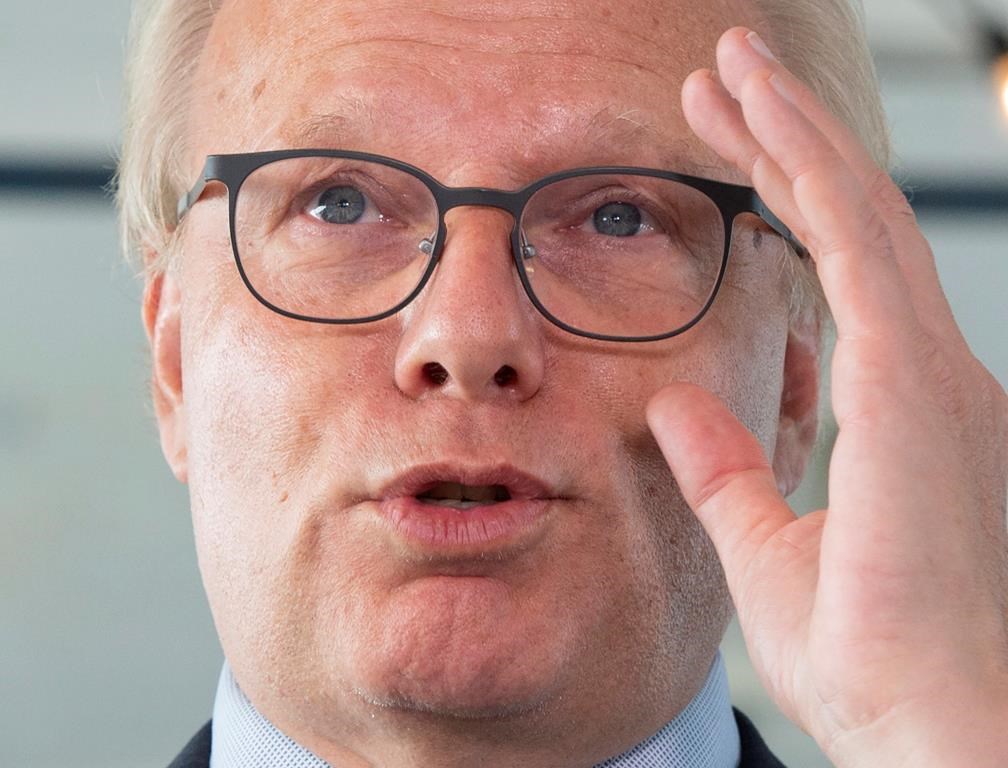It was 7 a.m. on a Sunday, but Jean-François Lisée was full of energy as he met with Parti Québécois (PQ) members who’d roused themselves for an early breakfast with their leader.

Less than 12 hours before, he’d bounded onto a stage in front of a packed audience, high-fiving members of his party’s youth wing who shouted “Lisée! Lisée! Lisée!” with his campaign music blaring.
“We’re acting as though we want to give people money, but secretly we want to save the planet,” he said to applause some minutes later, as he discussed his plan to subside carpooling and take cars off the road.
READ MORE: Candidates discuss mobility, transportation as election nears
Outside the cheering crowds that pack his partisan rallies, polls suggest Lisée has failed to shift public opinion, despite a punishing campaign pace and two strong debate performances.
The sovereigntist party has remained stubbornly mired in third place, some 10 percentage points behind both the Coalition Avenir Quebec (CAQ) and the Quebec Liberal Party.
WATCH BELOW: Couillard pushes Legault on sovereignty

And recent numbers have even suggested that third-place standing is being challenged by the surging left-wing Québec Solidaire — a fact Lisée is keenly aware of.
After drawing praise for his performances in the first two leaders’ debates — including one in English — Lisée raised eyebrows during the final showdown with an off-topic attack against Quebec Solidaire’s leadership style.
During an exchange that was supposed to be about health care, Lisée instead questioned Quebec Solidaire’s Manon Massé about who ” pulls the strings” in her party, which has two co-spokespeople but no official leader.
READ MORE: Muslim candidate in Quebec election stops campaigning following violent threat
Massé answered that, in her party, “we learned how to share power.”

Get breaking National news
In the days that followed, Lisée doubled down on his attacks, accusing Quebec Solidaire of being a “Marxist” party that wants to nationalize all industries in the province.
He also took aim at the party’s proposal to replace the tax-free savings account system with a new program that would direct a portion of the investments toward providing loans for energy-efficient renovations.
WATCH BELOW: Dramatic shift as Quebec election campaign enters crunch time

“They say, ‘we’re going to confiscate your savings accounts to invest it where we, Quebec Solidaire, think it should go,”’ Lisée said.
The attacks on Quebec Solidaire come toward the end of a campaign that began with Lisée proudly embracing his underdog status.
READ MORE: Quebec reaches highest percentage of female candidates in history, Elections Quebec says
The 60-year-old former cabinet minister and one-time adviser to Jacques Parizeau and Lucien Bouchard was fond of noting he wasn’t the favourite to win his party’s leadership in 2016.
But he did indeed become leader of a party that had just come off one of its worst defeats in history, winning just 25 per cent of the popular vote in 2014 and only 30 of the province’s 125 seats.
Lisée, who has served in the legislature since 2012, entered the race with a bold promise to not hold a referendum on sovereignty in his first mandate as premier.
WATCH BELOW: Muslim candidate in Quebec election stops campaigning after threats

Instead, he’s banked on a generally left-of-centre platform that includes electrifying the public transit network, eventual free schooling, stronger language laws, and leveraging the threat of an eventual referendum to force Ottawa to fork over billions of dollars he says Quebec is owed.
READ MORE: Young Quebecers ‘highly engaged’ in provincial election, IPSOS poll says
But so far, Lisée’s attempt to broaden his party’s appeal seems to have backfired, with voters seeking change appearing to be turning toward either the CAQ or Quebec Solidaire to provide it.
CAQ Leader François Legault has openly courted PQ nationalist voters, encouraging them to vote strategically for his party to defeat the federalist Liberals.
Quebec Solidaire, which also advocates for independence from a Canadian “oil state,” looks increasingly to be the favourite option for the young voters the PQ is trying to court.
WATCH BELOW: Party leaders face off in English debate

One of the seats it is vying for is Lisée’s own riding of Rosemont, where polls suggest he’s running neck and neck with Quebec Solidaire candidate Vincent Marissal.
READ MORE: Immigration the ‘ballot box’ question in Quebec election
If the current polling numbers are accurate, Lisée’s party could be headed for one of its worst showings in history.
But as the CAQ and the Liberals appear deadlocked at about 30 per cent support each, there’s still a chance the PQ could hold the balance of power in a minority government.
While he’s ruled out forming a coalition with Legault’s party or Quebec Solidaire, Lisée’s remaining coy on all other scenarios, save one.
“If Quebecers elect a minority Parti Québécois government, we’ll respect that and we’ll govern as a minority for four years,” he said.
WATCH BELOW: Making the environment a Quebec election campaign issue



Comments